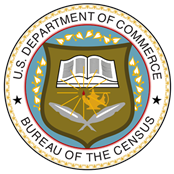Public Engagement
The U.S. Office of Management and Budget (OMB) undertook a full, transparent revision process, with input from the American public, to ensure rigor, validity, objectivity, and impartiality of the recommended revisions.
Below is how the public shared their perspectives and input with the Working Group.
Public Comments to Federal Register Notice
The U.S. Office of Management and Budget (OMB) requested comments on the initial proposals from the Federal Interagency Working Group on Race and Ethnicity Standards (Working Group) from January 27 - April 27, 2023.
The public comments received can be viewed at Regulations.gov.
Public Comments to Federal Register Notice
Received as of April 27, 2023
20,255
Public Webinars (or Town Halls)
March 2023 — The U.S. Office of Management and Budget (OMB) and the Federal Interagency Technical Working Group on Race and Ethnicity Standards (Working Group) hosted three Town Halls to hear directly from the American public about the initial proposals to revise Statistical Policy Directive No. 15: Standards for Maintaining, Collecting, and Presenting Federal Data on Race and Ethnicity (SPD 15).
Public Listening Sessions
In August of 2022, OMB announced the start of virtual, bi-monthly listening sessions to hear directly from members of the public. These listening sessions ran from September 2022 through September 2023.
The information presented in the sessions was evaluated by the Working Group and helped to inform their work as they developed the final recommendations for OMB.
An official website of the U.S. Office of Management and Budget and the U.S. Census Bureau
Contact Us: Statistical_Directives@omb.eop.gov



